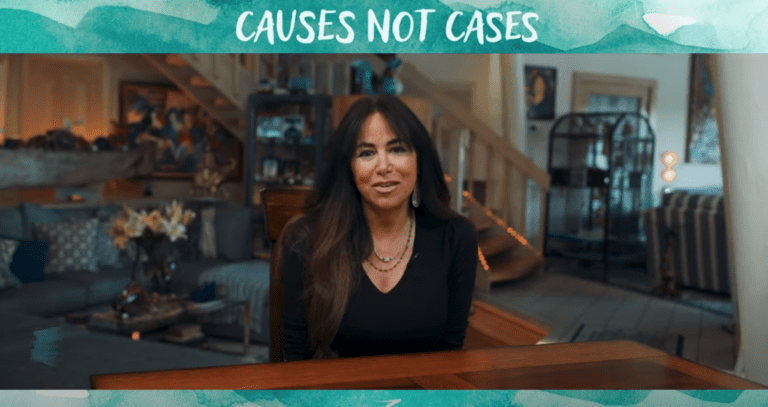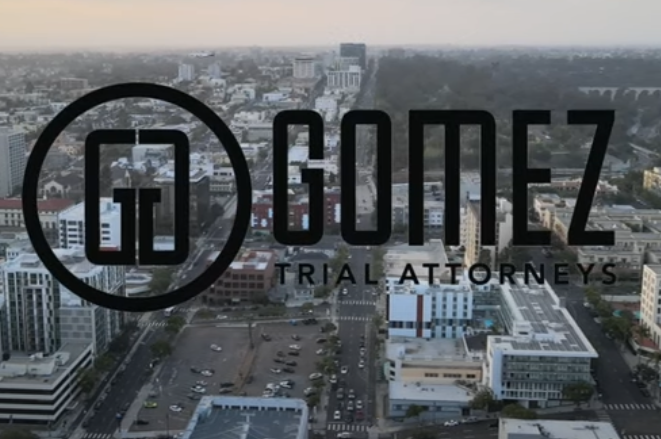Determining What Your Brain Injury Could Cost You
If you are suffering from a brain injury, you have probably already incurred significant costs associated with your initial care, diagnosis, and ongoing treatment, some of which could cost you thousands of dollars a month. Your injury may be serious enough to prevent you from working full time or at all, or you may be unable to engage in your previous employment due to physical or mental disabilities that your traumatic brain injury causes.
If your injury was caused by the negligence of another party, an experienced brain injury lawyer may be able to help you recover monetary damages related to initial and ongoing medical care, rehabilitative therapy, lost and future earnings, loss of consortium, and pain and suffering.
Types of Damages
The type and amount of damages you may be entitled to depend entirely on the facts of your case and the severity of your injuries. While every case differs, you may be entitled to some or all of the damages below.
Keep all documentation associated with the cost of treating and diagnosing your brain injury, so hang on to hospital and doctor’s bills, receipts from medications and medical supplies, and any other time you spend money for a cost related to your injury.
Initial Medical Costs
Your initial medical costs may be the most obvious type of damages you’ve incurred. Ambulance transportation, treatment at an emergency care facility, subsequent hospital stay, doctors’ fees, anesthesia, medications received while hospitalized, operating room fees, and the cost of supplies will be billed to you. Even though all of these costs were associated with your initial hospital stay, you will probably receive multiple bills from multiple professionals and facilities involved in your treatment, so keep an eye out for all of them.
Brain injuries are not always diagnosed immediately. In fact, it can take days, weeks, or even longer for symptoms to appear. If you were not taken to a care facility immediately after your injury, you will want to keep track of the costs you incur during the process of getting your diagnosis, which may include seeing your general practitioner who then referred you to a specialist, the bills from that specialist, and the cost of any diagnostic testing such as a CT or MRI scan. It can often be difficult to receive a brain injury diagnosis because the symptoms vary from person to person and many physicians are not experienced in treating and diagnosing this type of injury.
Ongoing Medical Costs
You may face ongoing medical costs. This might include follow-up visits or appointments with specialists or regular tests of one type or another. You may even need surgery down the road from your initial injury. Many brain injury sufferers also require daily medication. All of these costs are potentially recoverable in a brain injury lawsuit.
Rehabilitation Costs
Once you have received your initial treatment and diagnosis, you may require rehabilitative treatment to enable you to resume activities of daily living such as eating, dressing, using the bathroom, speaking, or walking. Depending on your needs and the severity of your symptoms, your rehab might include one or more of the following.
- Inpatient rehab – Also referred to as acute rehab, this type of rehabilitation therapy should begin as soon as possible after the injury. It usually occurs in a specialized facility in a trauma hospital or a separate rehab facility. A patient is admitted to the facility and a team of specialists begins the difficult work of helping the patient. The treatment team may be made up of physical and occupational therapists, a neuropsychologist, and an attending physician who is on duty 24 hours a day. Patients spend hours a day in therapy (usually between 3 and 6) up to six days a week in both group and individual settings. Therapeutic recreation and other therapies may be provided if resources are available and the patient’s need dictate.
- Sub-acute rehab – Sub-Acute rehabilitation is a step down from acute rehab and may be the next phase of rehab for those who have undergone acute therapy or it may be the best option for those who have undergone acute rehab but, while progressing, are not making functional gains rapidly. Sub-acute rehab services are less intensive (fewer hours per day) but are generally available for a longer period of than acute rehab treatment. These services are provided at hospitals, skilled nursing facilities, and nursing homes.
- Day treatment – Upon release from an acute or sub-acute rehab facility, some patients may require day rehab treatment. In this type of program, the patient receives treatment at a facility during the day and returns home at night.
- Outpatient treatment – A final level of therapy (and the one that may last the longest) is outpatient therapy. A patient receiving outpatient rehabilitation therapy lives at home and attends several appointments per week or at other intervals deemed necessary by her provider.
Costs of rehab can be substantial and ongoing with no known end date. Insurance companies often limit how much and which type of rehabilitation treatment they will pay for, so patients may be left to cover significant costs
Mental Health Treatment
Brain injuries don’t just affect the physical body. They can also affect a person’s mental health. Common symptoms include sudden anger, combativeness, unusual behavior, anxiety, depression, fear, hopelessness, and even suicidal ideation. Many patients feel like their injury has stolen part of them. If physical injuries are serious enough, a person suffering from a brain injury may have to deal with the frustration of relearning simple daily living tasks. Simply adjusting to a new “normal” can be incredibly challenging. Fortunately, mental health services exist that can help a patient deal with the onslaught of emotions and challenges she faces post-injury. Talk, art, equine, water, and other therapies may be beneficial and are often provided in individual and group settings.
Lost Wages and Loss of Future Earnings
Your injury likely kept you away from work – either for a short period of time or potentially for the rest of your life. You may have had a high-stress job that required you to perform sophisticated mental tasks that you are now unable to perform, forcing you to take work in a different professional field for a lower salary. The number of therapy and doctors appointments you now have to attend could force you to work part time, whereas before you held down a full time job with health insurance and a 401(k) plan.
The wages you already lost from your injury (lost wages) and those you will lose in the future (loss of future earnings) will likely be part of the damages you seek in your lawsuit. With careful documentation, proving lost past wages can be fairly simple. You will want to document all days of missed work, time you’ve had to take off for appointments, and any other time you miss work that is directly related to your injury. This is particularly important if you are employed on an hourly basis and your employer does offer short- or long-term disability benefits.
Calculating the value of your lost future wages is much more complicated.
To help with this calculation, your brain injury attorney will likely employ an expert to crunch the numbers and reach a value that reasonably represents the amount of future wages your injury has caused you to lose. The calculation will be based upon your present age, life expectancy, earnings at the time of your injury, possible increases in earning potential over your life expectancy, and adjustments for changes in the value of money over time.
While there is no way to know for sure how much money you might have earned over your life had you not been injured, this methodology is the accepted way to calculate these damages and will likely serve as the basis for a jury award for lost future wages.
Pain and Suffering
Beyond the costs to which you can attach a definite monetary value because they are sent to you in the form of a bill, you may also be entitled to damages for your pain and suffering. These are referred to as non-economic damages. Under California law, there is no set standard for determining the appropriate amount of pain and suffering damages a plaintiff is entitled to recover. Rather, it is left up to a jury to decide based on the evidence presented at trial. Factors a jury might consider and that a competent brain injury attorney would present include loss of enjoyment of life, inability to engage in leisure activities, the onset of post-traumatic stress disorder, anxiety, depression, grief, fear, level of physical pain suffered both in the past and what is expected in the future, and whether the plaintiff was disfigured in any way or suffered humiliation or emotional distress.
Loss of Consortium
Some injuries are severe enough to forever change the close familial relationships between the person who suffered the injury and his or her family, generally a spouse. Loss of consortium damages attempt to attach a dollar amount to the value of that lost relationship. These damages are generally divided into three categories.
- Loss of support – This category is similar to lost wages damages awarded to the injured party. A jury would consider how much money the spouse would have earned and how much of that income he or she would have contributed to the household and potentially award that amount to the spouse.
- Loss of services – This refers to the services the spouse previously provided the household but is no longer able to contribute. Such services might include mowing the lawn, caring for children or pets, doing laundry, taking care of maintenance and upkeep around the house, or driving children to and from school or activities.
- Loss of quality – Loss of quality damages refer to the more intangible parts of the spousal relationship, such a companionship, love, engaging in sexual relations, and affection.
Other Damages
Because each brain injury lawsuit is so fact-specific, there may be other types of damages you could recover, depending on your particular case. If you were the primary caretaker of children in the home and now you have to hire a nanny or send the children to out-of-home care, you may be able to recover that cost, both for already-incurred cost and that you will incur in the future. Severe injuries can leave a person unable to do basic household tasks like cleaning, yard work, and cooking and it may be possible to recover the costs you incur to have another person do those chores.
A competent and experienced brain injury attorney will look at the entire picture of your case to determine what types of damages and how much of each you should attempt to recover from the defendant.
Wrongful Death
If one of your loved ones has died due to a brain injury caused by another person’s negligence, you may be able to pursue a wrongful death action against the responsible party. Some of these damages are similar to what the injured party might herself would have been able to recover – things like pre-death medical expenses and loss of financial support. In addition, a jury might also award funeral and burial costs, loss of consortium, and damages for the emotional pain and suffering you experienced because of the loss of your loved one.
Consult Kacie Wagner At Gomez Trial Attorneys if You Have More Questions

Because brain injury lawsuits are complicated and require specific knowledge of the science and medicine surrounding the cause and treatment of brain injuries, contact and choose an attorney who focuses on this type of case.
If your case does not settle, you will proceed to a trial in front of a jury. Jury trials require a certain set of skills that not all attorneys possess. You want an attorney who knows how to pick a sympathetic jury, when to be aggressive with witnesses and when to let them speak, which type of evidence should be admitted and excluded, and how to relate to a jury during her opening statement and closing argument.
Focus on healing your body and mind. Let a skilled brain injury lawyer focus on fighting for your legal rights and the compensation to which you are entitled while you rebuild your life and begin to heal.







